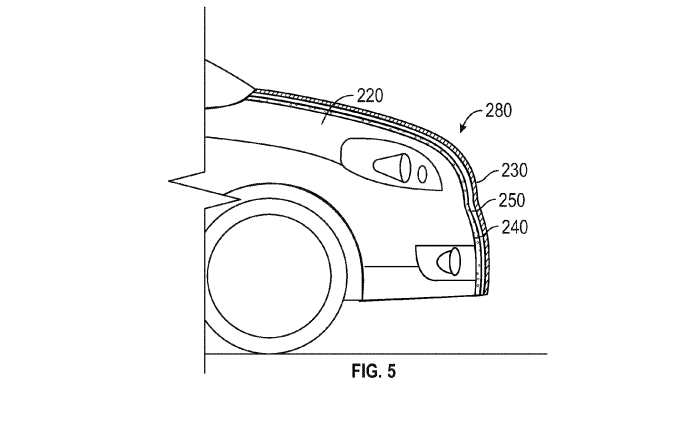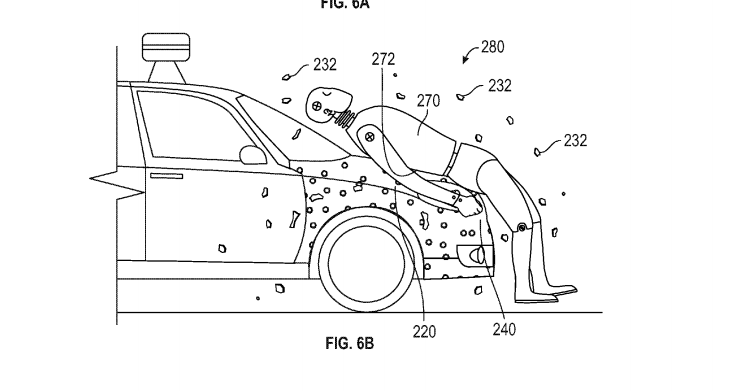Google Patents Pedestrian “Glue” For Self-Driving Cars
While Google’s self-driving vehicles have been cruising around the streets, the company’s engineers have been working on a way to ensure pedestrians that may come into contact with the bumper of one of those autonomous vehicles are left relatively unscathed. Their apparent solution: an adhesive that makes people stick to the car’s hood.
At least that’s the impression one might get from a recent Google patent intended to protect pedestrians during impact with a vehicle.
“Some efforts have been made to provide for the mitigation of injury to a pedestrian in a collision with an [autonomous] vehicle,” Google says in the patent, noting that when a vehicle has a person behind the wheel the operator is able to react in a way that can prevent injury, where as a fully self-driving vehicle can not.
According to the patent, the system is for protecting a colliding object from a secondary impact after initially hitting the vehicle.
That means while someone would have to actually be hit by Google’s self-driving car, they wouldn’t be pushed forward and hit a second time.
Here’s how it would work: an adhesive layer covered by a special coating would be placed on the front end of a vehicle.
Upon initial impact, the coating would be broken exposing the adhesive layer to “adhere the colliding object to the adhesive layer during the initial impact.”
Google says in the patent that the adhesive wouldn’t be relegated to the front of the vehicle; it could also be used on side panels, as well.
So far, Google’s self-driving vehicles have reportedly only been in accidents involving other cars, or in one case, a city bus. The patent suggests the company is taking the potential of a pedestrian versus car accident seriously.
Of course, we should point out that while Google has filed for the patent, that doesn’t mean the company will actually use it in the future.
Want more consumer news? Visit our parent organization, Consumer Reports, for the latest on scams, recalls, and other consumer issues.



